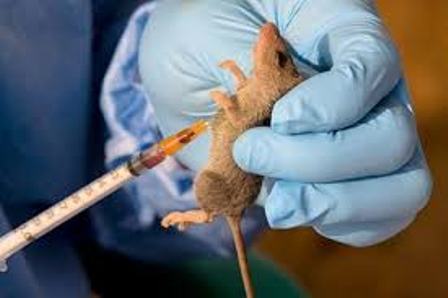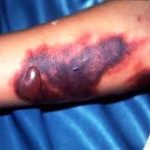No fewer than 195 confirmed cases and 29 deaths have been reported from the current Lassa Fever epidemic in the 11 states of Edo, Ondo, Ebonyi, Delta, Taraba, Plateau, Bauchi, Ogun, Abia, Kano and Enugu.
Citing reports from the Nigeria Centre for Disease Control (NCDC), the Minister of Environment, Dr. Mohammad Abubakar, at a world press conference in Abuja yesterday January 27, said 89 percent of the casualties are from Ondo, Edo and Ebonyi states. Other states that have reports cases include Delta, Taraba, Plateau, Bauchi, Ogun, Abia, Kano and Enugu.
The minister said that before the recent epidemic, the ministry had taken proactive measures to improve the general sanitation and hygiene situation in the country.
“In 2019, sanitation desks were established in 36 states to coordinate the programme and related activities, liaise with local government environment departments and report back to the ministry.
“We are responding to the increasing number of Lassa fever cases across the country, by sensitising the public on preventive and control measures to avert further outbreak and spread.”
He added that in 2019, the government worked with the World Health Organisation and the NCDC to carry out environmental sanitation response activities in Edo and Ondo states by distributing equipment and chemicals.
“Lassa fever virus is transmitted by rodents, which can be found in our environment, including homes, motor parks, offices and even places of worship. This contributes to the risk of spread in Nigeria,” he stressed.
In response to the increasing number of Lassa fever cases across the states, the NCDC told journalists that it had activated a national Emergency Operations Centre (EOC) on January 24, 2020 to coordinate response activities.
The EOC will be manned by representatives of the National Emergency Management Agency (NEMA), Federal Ministry of Agriculture and Rural Development, Federal Ministry of Environment, WHO, United Nations Children Fund (UNICEF), United States Centers for Disease Control (CDC), and other partners.
Director General and Chief Executive Officer of the NCDC, Dr. Chikwe Ihekweazu, said the centre would continue to support states in strengthening their preparedness and response capacity.
Meanwhile, the Nigeria Medical Association (NMA) said the current outbreak of Lassa fever across the country was a reflection of the abysmally low level of preparedness in handling infectious diseases, especially viral hemorrhagic fever at all levels of healthcare delivery.
According to the association, the frequency of the outbreaks also gives credence to the deplorable state of healthcare delivery in Nigeria.
The President of the NMA, Dr. Francis Faduyile, in a statement yesterday in Abuja, stressed the need to strengthen institutional infection prevention and control measures and preparedness with periodic capacity building, and to build more diagnostic and treatment centres across the country in order to effectively combat the dreaded Lassa fever.
“We appeal to health authorities at all levels to prioritise the capacity building of healthcare professionals on standard infection prevention and control measures, and ensure the provision of basic disinfectants and appropriate personal protective equipment in healthcare facilities.”
He urged stakeholders to intensify the ongoing public enlightenment campaign and ensure that all Nigerians, especially those at the rural communities, are educated on preventive strategies and prompt care seeking.
According to him, Lassa fever is a viral hemorrhagic disease caused by the Lassa fever virus which is endemic in Nigeria and other parts of Africa. “The rodents are the natural reservoir of the Lassa fever virus, and transmission primarily occurs through contact with its excreta and blood and consumption of contaminated food items.”


